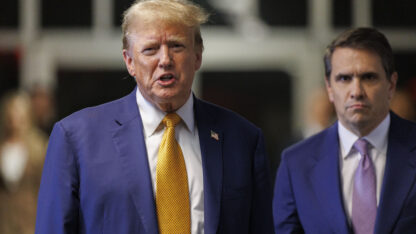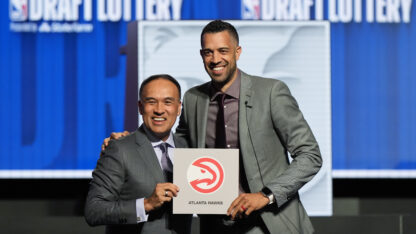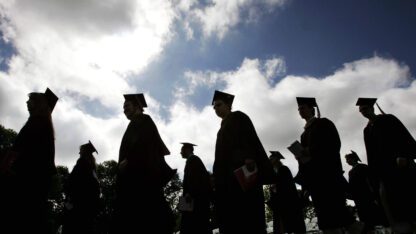Hunter Biden’s federal gun case should move forward, an appeals court ruled Thursday, setting the stage for the president’s son to stand trial on criminal charges next month in Delaware.
Hunter Biden’s lawyers went to the 3rd U.S. Circuit Court of Appeals after the judge overseeing the case last month rejected his bid to dismiss the prosecution. A three-judge panel of the appeals court did not rule on the merits of his claims, but said the court doesn’t have jurisdiction to review the matter.
In an order shortly after that ruling came down, U.S. District Judge Maryellen Noreika said the case would proceed to trial on June 3, and is expected to last three to six days. Noreika, who was appointed to the bench by former President Donald Trump, later denied another bid to dismiss the case that challenged the constitutionality of the central gun charge.
The rulings pave the way for the Justice Department to bring President Joe Biden’s son to trial in the midst of the president’s re-election campaign. Hunter Biden is separately charged in a tax case in California that is tentatively scheduled to go to trial in late June.
His legal team, however, suggested they will continue fighting the issue, which they can ask the full appeals court to consider.
“In reviewing the panel’s decision, we believe the issues involved are too important and further review of our request is appropriate,” defense lawyer, Abbe Lowell, said in an emailed statement.
Hunter Biden has pleaded not guilty to lying about his drug use in October 2018 on a form to buy a gun that he kept for about 11 days in Delaware. He has acknowledged an addiction to crack cocaine during that period, but his lawyers have said he didn’t break the law.
The yearslong investigation had looked ready to wrap up with a plea deal last year, but the agreement imploded after a judge raised questions about it. Biden was subsequently indicted.
Under the deal, he would have gotten two years’ probation after pleading guilty to misdemeanor tax charges. He also would have avoided prosecution on the gun charge if he stayed out of trouble.
His attorneys have argued that prosecutors bowed to political pressure to indict him amid heavy criticism of the plea deal from Trump and other Republicans. They had also challenged the appointment of Delaware U.S. Attorney David Weiss as special counsel to lead the prosecution.
Prosecutors countered the evidence against him was “overwhelming,” including cocaine residue found in the pouch where he stored his gun, and noted that charges had been filed during the presidency of his father.
In her ruling last month, Noreika said that the defense had provided “nothing credible” to suggest that the lawmakers or anyone else had any impact on the special counsel, adding: “It is all speculation.”
He faces separate tax counts in Los Angeles alleging he failed to pay at least $1.4 million in taxes over three years while living an “extravagant lifestyle,” during his days of using drugs. He is separately challenging rulings rejecting his motions to dismiss those charges.









